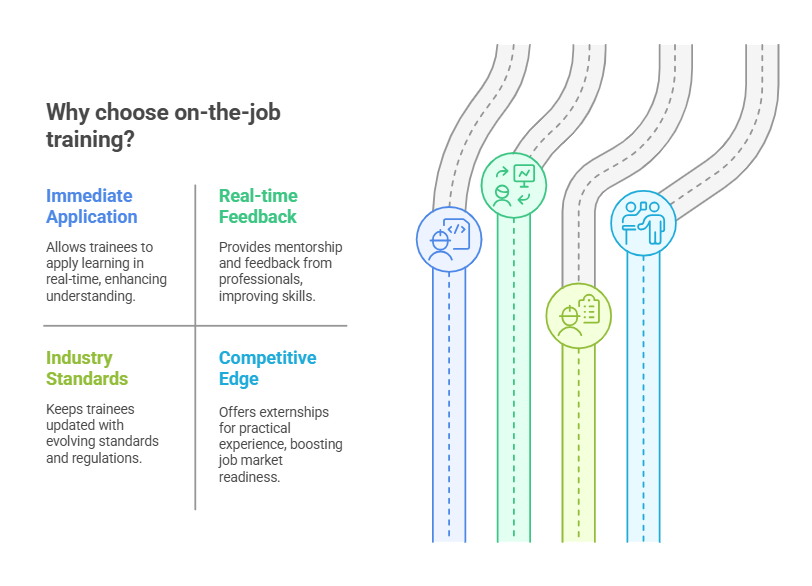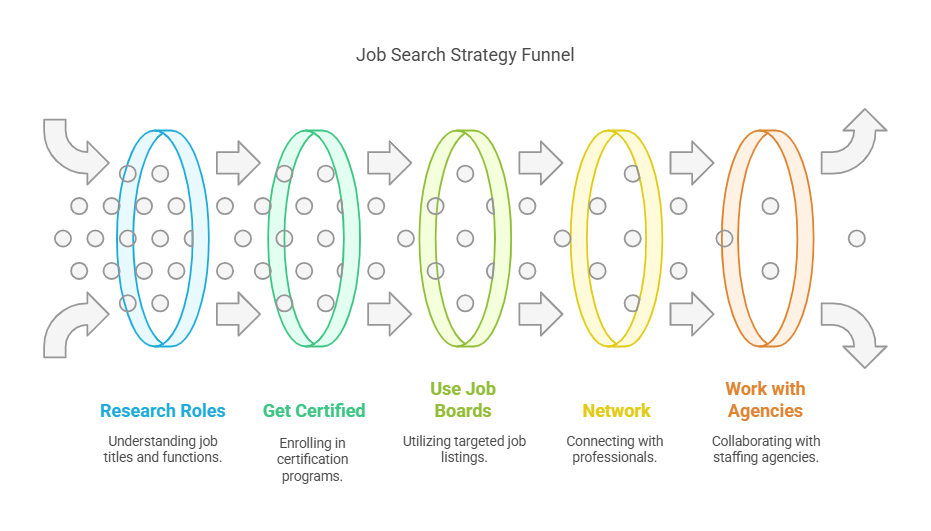Top On the Job Training Medical Billing and Coding Programs
On-the-job training in medical billing and coding has become an increasingly popular route for individuals entering the healthcare administrative field. This hands-on approach enables learners to gain real-world experience while acquiring the theoretical knowledge necessary for success. As of 2025, this training method continues to evolve, with more healthcare institutions and educational providers offering structured programs that blend classroom instruction with workplace immersion. Whether you’re transitioning from a different career or starting fresh, on-the-job training can offer a streamlined path into this high-demand profession.
What Is Medical Billing and Coding?
Medical billing and coding are two interrelated processes that ensure healthcare providers receive payment for their services. Medical coders translate diagnoses, procedures, and medical services into standardized codes using systems like ICD-10, CPT, and HCPCS. These codes are then used by medical billers to create claims that are submitted to insurance companies for reimbursement. Professionals in this field must possess a deep understanding of medical terminology, health regulations, and insurance protocols. Earning a medical billing and coding certification from AMBCI can enhance career prospects and demonstrate expertise in the industry. Attention to detail, analytical thinking, and good communication are all vital traits for success.
Why Choose On-the-Job Training?
Unlike traditional academic settings, on-the-job training immerses students in a working environment, allowing them to apply what they learn immediately. This approach strengthens their understanding of coding software, documentation protocols, and billing regulations. Trainees also benefit from real-time feedback and mentorship from seasoned professionals. For instance, coding complex diagnoses under supervision sharpens problem-solving abilities and reinforces learning.
Moreover, on-the-job training helps professionals stay updated with evolving industry standards, which is crucial in a field that experiences frequent regulatory and technological changes. Externships are often integrated into these programs, allowing learners to gain a competitive edge in the job market by acquiring confidence, clarity, and speed in handling real cases.
Key Skills You Gain
Through hands-on training, students become proficient in industry-standard coding software and gain an in-depth understanding of legal compliance within healthcare. The training emphasizes precise documentation and record-keeping—critical skills for avoiding costly errors in billing. Moreover, the ability to interpret and apply insurance policies effectively allows coders and billers to manage denials and rejections proactively.
Top On-the-Job Training Programs in 2025
In 2025, programs like those offered by Carrington College remain highly regarded. Their comprehensive training course, which costs approximately $22,324, includes both theoretical learning and externships. Other notable programs are facilitated through partnerships between community colleges and local hospitals. These hybrid models offer a unique blend of academic instruction and real-world experience. Additionally, online providers like MedCerts and Penn Foster offer job-integrated programs that include certification prep for CPC, CPB, and CBCS exams.
Career Opportunities After Training
Medical billing and coding open doors to a variety of roles in healthcare. These include positions like:
Medical Coder – Responsible for translating medical documentation into codes.
Medical Biller – Prepares and processes insurance claims for healthcare providers.
Health Information Technician – Manages patient data and ensures its accuracy and security.
Billing Compliance Analyst – Focuses on regulatory adherence and internal auditing.
Remote Coding Specialist – Works from home reviewing and coding charts.
With remote work options growing in 2025, many certified professionals now enjoy flexible schedules while earning competitive salaries. Entry-level roles typically offer $38,000 to $55,000 annually, with experienced certified coders earning over $70,000.
Importance of Certification
Obtaining certification significantly improves job prospects. Credentials like the Certified Professional Coder (CPC) or Certified Billing and Coding Specialist (CBCS) validate your expertise. Programs offered by AAPC and AHIMA often include preparatory modules that align with these exams. Notably, MedCerts offers a 28-week online program tailored for CPC and CPB certifications.
Graduates like Robert Perreira, who passed three board exams consecutively, and Tiffany Morgan, who succeeded without prior experience, highlight the transformative impact of quality training and certifications.
Real-Life Success Stories
Graduate testimonials offer compelling proof of the benefits of on-the-job training. Jennifer Campbell attributes her success to expert mentorship, while Kristy Gann emphasizes how guided instruction helped her pass industry exams. Some graduates, like Robin and Lindsey, reported learning more in three days of immersive job training than in over a year of classroom learning. These stories underline the importance of quality mentorship and hands-on practice.
How to Find a Job After Training
To secure a position in this field:
Research roles: Understand various job titles and their functions.
Get certified: Enroll in certification programs to boost your resume.
Use job boards: Platforms like AAPC and AHIMA offer targeted job listings.
Network: Connect with professionals through forums, LinkedIn, or conferences.
Work with staffing agencies: Many agencies specialize in placing coders and billers.
Being proactive with your job search strategy can significantly increase your chances of landing a well-matched position.
Enrolling in a Program
To enroll in an on-the-job training program, start by researching program formats and requirements. Make sure it includes both theory and hands-on application. Look into the qualifications of instructors and check whether the program offers externship opportunities. Once you've identified a suitable program, complete the application process, which may include submitting academic records and fulfilling pre-requisites.
6 Lesser-Known Facts About Medical Billing and Coding in 2025
AI-Powered Audits Are Rising: AI is enhancing healthcare billing by automating audits, reducing errors, and ensuring compliance with regulatory standards. Healthcare Business Today+3LinkedIn+3Info Hub Consultancy+3
Specialty Coders Are in Demand: Specialized medical coders, particularly in areas like cardiology and oncology, are in high demand and command higher salaries due to their expertise.
Remote Work Boom: The trend of remote work among certified coders has increased post-pandemic, with many professionals now working remotely, a shift that continues into 2025.
Blockchain Integration: Some healthcare systems are exploring the integration of blockchain technology for secure and tamper-proof storage of billing data, aiming to enhance data integrity and security. VComply
Gamified Training Platforms: Innovative training platforms are incorporating gamification, such as coding simulations and interactive games, to make learning more engaging for medical coding professionals.
Medical Coding in Legal Cases: Trained medical coders are increasingly being employed in legal settings to assist with insurance fraud detection and support malpractice cases through accurate coding and documentation.
Frequently Asked Questions (FAQs)
-
On-the-job training allows you to learn and apply billing and coding practices in a real healthcare setting, providing direct experience while you train.
-
Yes. Certification from AAPC or AHIMA is highly recommended and often required by employers for better job opportunities and higher pay.
-
Most programs range from 4 to 9 months, depending on whether they’re full-time, part-time, or integrated with online coursework.
-
Absolutely. Many certified coders now work remotely for hospitals, clinics, or insurance companies. Some start freelancing or contract-based work as well.
-
Entry-level roles start at around $38,000, while experienced and certified professionals can earn up to $75,000 or more, especially with specialty coding skills.




